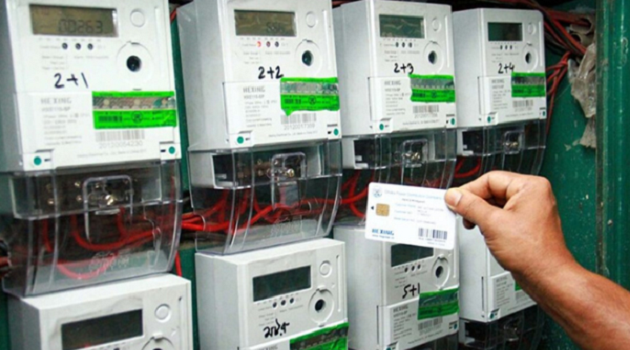General News
GEJ Tells GMB to Extend Probe to Obasanjo, Others

President Goodluck Jonathan on Wednesday advised the President-elect, Muhammadu Buhari, not to single out his administration in any probe he may want to carry out after his inauguration on Friday.
The outgoing President who spoke at the valedictory session of the Federal Executive Council (FEC) at the Presidential Villa in Abuja, advised Buhari to extend his probe beyond his regime or else, the probe will be seen as a witch-hunt.
The other administrations include those of Gen. Abdulsalami Abubakar (1998-1999), former President Olusegun Obasanjo (1999-2007) and the late Umaru Musa Yar’Adua (2007-2010).
Jonathan said such probe should cover how oil wells and fields were allocated in the past.
Jonathan said “Some people are even calling for the probe of this government. I agree in Nigeria there are a number of things that we will probe, very many things. Even debts owed by states and this nation from 1960 up to this time, they say it is Jonathan’s administration that is owing all the debt.
“I believe that anybody calling for probe must ensure that these probes are extended beyond the Jonathan administration; otherwise, to me, it will be witch hunting. If you are very sincere, then it’s not just the Jonathan’s administration that should be probed.
“A number of things have gone wrong and we have done our best to fix them. The Attorney General is aware of massive judgment debts. If we aggregate all of them, it’s almost going to $1 billion. How did we come to this kind of huge judgment debts?
“These issues should be probed. How do you allocate our oil wells, oil fields, marginal wells and all that; do we follow our laws? All these should be probed. And I believe all these and many more areas should be looked at.”
According to him, the fuel scarcity and workers’ strikes are acts of sabotage by those bent on bringing down his administration, despite having few days to go.
Jonathan said: “Even this last fuel scarcity, to me, one can clearly say it was an act of sabotage. This government has few days to go. That is definitely not the time you expect massive strikes, using marketers and unions; unions asking for increase in salaries at a time oil price has dropped and volumes have dropped.
“None of the International Oil Companies (IOCs) is increasing salaries but our unions wanted 11 per cent increase in allowances and so on and so forth and went on strike.
“There was 21 days reserve in this country. It is not as if we had no products but they just refused to lift. Diesel was deregulated long ago, so the issue was not the product but people who felt they must bring this government to its knees even when they know that we had few days to leave. But we thank God we are getting over it and God will see us through.”
The President also stressed that his administration had done its best for Nigeria.
His words: “One thing that is clear, I enjoyed working with all of you. I’m very pleased with all of you. I want to thank all of you for your various contributions to the development of our country. I want to thank those that have been with us, the Advisers, Special Senior Assistants, the secretariat, other senior government functionaries, including the media that covered proceedings every Wednesday.”
“As a cabinet, we have tried our best. I believe we have done well under a very difficult situation. There are a lot of criticisms; people say different things at different times. Some of those who make some statements know they are purely political.
“I have always throw, the challenge that those who criticise us should compare what we have done in the various sectors to what others have done. I may not need to enumerate but if you look at the rail system and what we have done within this period, the oil sector where there has been so much attack, one good thing we did was the Nigerian content law that revolutionised the oil industry.”
He went on: “There were a lot of fabrication going on in Lagos and other places but it was never like this before. Nigerians are playing key roles in the oil sector. People sometimes forget this. Even with that, maybe we have offended some people but the Nigerian local content has really helped so many Nigerians to play big in the oil sector.”
“The agriculture, power sectors and maybe in foreign relations, like the Minister of Foreign Affairs mentioned, from 1960 to date, we have been members of the Security Council as non-permanent members five times; out of these five times, two times was with the five years of our administration.”
“We have been an independent nation for years and we have been in the United Nations Security Council as non-permanent members five times, two within this administration. That shows clearly that the rest of the world appreciates our little contributions to global issue.”
President Goodluck Jonathan on Wednesday advised the President-elect, Muhammadu Buhari, not to single out his administration in any probe he may want to carry out after his inauguration on Friday.
The outgoing President who spoke at the valedictory session of the Federal Executive Council (FEC) at the Presidential Villa in Abuja, advised Buhari to extend his probe beyond his regime or else, the probe will be seen as a witch-hunt.
The other administrations include those of Gen. Abdulsalami Abubakar (1998-1999), former President Olusegun Obasanjo (1999-2007) and the late Umaru Musa Yar’Adua (2007-2010).
Jonathan said such probe should cover how oil wells and fields were allocated in the past.
Jonathan said “Some people are even calling for the probe of this government. I agree in Nigeria there are a number of things that we will probe, very many things. Even debts owed by states and this nation from 1960 up to this time, they say it is Jonathan’s administration that is owing all the debt.
“I believe that anybody calling for probe must ensure that these probes are extended beyond the Jonathan administration; otherwise, to me, it will be witch hunting. If you are very sincere, then it’s not just the Jonathan’s administration that should be probed.
“A number of things have gone wrong and we have done our best to fix them. The Attorney General is aware of massive judgment debts. If we aggregate all of them, it’s almost going to $1 billion. How did we come to this kind of huge judgment debts?
“These issues should be probed. How do you allocate our oil wells, oil fields, marginal wells and all that; do we follow our laws? All these should be probed. And I believe all these and many more areas should be looked at.”
According to him, the fuel scarcity and workers’ strikes are acts of sabotage by those bent on bringing down his administration, despite having few days to go.
Jonathan said: “Even this last fuel scarcity, to me, one can clearly say it was an act of sabotage. This government has few days to go. That is definitely not the time you expect massive strikes, using marketers and unions; unions asking for increase in salaries at a time oil price has dropped and volumes have dropped.
“None of the International Oil Companies (IOCs) is increasing salaries but our unions wanted 11 per cent increase in allowances and so on and so forth and went on strike.
“There was 21 days reserve in this country. It is not as if we had no products but they just refused to lift. Diesel was deregulated long ago, so the issue was not the product but people who felt they must bring this government to its knees even when they know that we had few days to leave. But we thank God we are getting over it and God will see us through.”
The President also stressed that his administration had done its best for Nigeria.
His words: “One thing that is clear, I enjoyed working with all of you. I’m very pleased with all of you. I want to thank all of you for your various contributions to the development of our country. I want to thank those that have been with us, the Advisers, Special Senior Assistants, the secretariat, other senior government functionaries, including the media that covered proceedings every Wednesday.”
“As a cabinet, we have tried our best. I believe we have done well under a very difficult situation. There are a lot of criticisms; people say different things at different times. Some of those who make some statements know they are purely political.
“I have always throw, the challenge that those who criticise us should compare what we have done in the various sectors to what others have done. I may not need to enumerate but if you look at the rail system and what we have done within this period, the oil sector where there has been so much attack, one good thing we did was the Nigerian content law that revolutionised the oil industry.”
He went on: “There were a lot of fabrication going on in Lagos and other places but it was never like this before. Nigerians are playing key roles in the oil sector. People sometimes forget this. Even with that, maybe we have offended some people but the Nigerian local content has really helped so many Nigerians to play big in the oil sector.”
“The agriculture, power sectors and maybe in foreign relations, like the Minister of Foreign Affairs mentioned, from 1960 to date, we have been members of the Security Council as non-permanent members five times; out of these five times, two times was with the five years of our administration.”
“We have been an independent nation for years and we have been in the United Nations Security Council as non-permanent members five times, two within this administration. That shows clearly that the rest of the world appreciates our little contributions to global issue.”
General News
AfDB Approves €6.5m for Tech Startups

African Development Bank Group (AfDB) has approved a €6.5 million investment in the Saviu II venture capital fund to boost technology start-ups across Francophone West and Central Africa.

The Bank Group will contribute €4.5 million as equity investment and an additional €2 million as a first-loss hedging tranche on behalf of the European Commission under the Boost Africa Programme.
The investment is expected to strengthen early-stage financing for innovative businesses with strong technological and digital components, particularly in French-speaking countries.
Saviu II, the second investment vehicle managed by Saviu Partners, plans to invest between €500,000 and €3 million in about 20 seed-stage or early institutional fundraising start-ups. The fund will primarily target B2B technology-oriented companies with scalable models.
At least 60 per cent of the fund’s commitments will focus on French-speaking countries in West and Central Africa, including Côte d’Ivoire, Cameroon, Benin, Senegal, Togo, Burkina Faso and Mali.
The fund may also co-invest in promising East African technology firms seeking expansion into Francophone markets.
In addition, Saviu II will dedicate a special funding envelope for pre-seed investments, mainly through minority equity stakes, often in collaboration with incubators, venture studios and other ecosystem partners.
Industry observers say the AfDB’s backing is expected to de-risk early-stage investment and crowd in more private capital into Africa’s growing digital economy.
Saviu Partners previously launched Saviu I in 2018 with a capitalization of €10 million.
The first fund invested in 12 start-ups, mainly based in French-speaking West Africa, offering not just funding but hands-on support in business development, recruitment, international expansion and fundraising.
General News
NERC Orders DisCos to Refund ₦20.33Bn Meter Costs to Customers

Nigerian Electricity Regulatory Commission (NERC) has ruled in favor of electricity consumers, directing distribution companies (DisCos) to refund ₦20.33 billion in outstanding costs for meters bought under the Meter Asset Provider (MAP) framework.

NERC
Signed on February 27, 2026, by Musiliu Oseni, chairman,NERC and Dafe Akpeneye, commissioner Order No. NERC/2026/025 amends a 2023 directive.
It requires DisCos to disburse the funds via energy credits over 12 months starting March 1, 2026, addressing years of slow refunds.
As of December 31, 2025, DisCos owed this amount due to delays in reimbursing prepaid customers who funded their own meters.
DisCos must automate credits for the full MAP meter cost upon activation, disbursed monthly over 120 months based on the customer’s tariff—credits cannot offset legacy debts.
Prepaid customers will receive a monthly token by the 4th day equivalent to the reimbursement value; for arrears, they’ll get two tokens per month.
Postpaid customers will see a distinct credit line on bills subtracted from totals, with two line items monthly for arrears.
NERC mandates monthly reports on reimbursement values using an approved template, plus dedicated email channels for complaints with resolution status included.
The order aims to end delays, improve notifications, and boost sector trust. DisCos must accelerate arrears recovery over 12 months without further excuses.
This follows NERC’s February 2026 compliance review, amid ongoing power sector challenges highlighted by Power Minister Adebayo Adelabu.
General News
NCDC Raises Alarm over Lassa Fever Ravaging 18 States in Nigeria

Nigeria Centre for Disease Control and Prevention (NCDC) has raised alarm over ravage of Lassa fever cases across 18 states and 67 Local Government Areas (LGAs) of the country.

Dr Jide Idris, director-general of NCDC, in statement yesterday, said that Bauchi, Ondo, Taraba, Edo and Benue accounted for more than 80 per cent of confirmed cases recorded during the 2026 peak transmission season.
Idris, described as particularly worrisome the growing infections among healthcare workers, with 28 confirmed cases and three deaths reported so far this season.
NCDC attributed the sustained transmission and rising fatalities to operational gaps at the state level, urging urgent action to strengthen outbreak response and control measures.
According to Idris, field investigations showed most transmissions were occurring in known endemic areas, but weak implementation of established response frameworks had contributed to the continued spread and higher case fatality rate.
He said that gaps identified include infections in general outpatient and maternity settings, poor adherence to Infection Prevention and Control (IPC) protocols, and inadequate pre-positioning of Personal Protective Equipment (PPE).
He added that delayed patient presentation due to financial barriers, inconsistent activation of State Incident Management Systems, weak contact tracing, persistent stigma and poor isolation centre standards were also driving transmission.
Idris emphasised that outbreak response implementation and health service delivery fell primarily under state governments within Nigeria’s federal structure, urging them to strengthen accountability and resource allocation.
He called on affected and high-risk states to urgently activate and closely monitor their Incident Management Systems, ensuring timely coordination and efficient outbreak response at all levels of healthcare delivery.
He also urged the immediate release of response funds, strict enforcement of Infection Prevention and Control (IPC) compliance in public and private health facilities, and continuous availability of PPE and other critical supplies.
The NCDC boss also advocated accelerated financial protection mechanisms to reduce late presentation and high fatality rates, alongside institutionalised rodent control and environmental sanitation measures under a One Health approach.
He advised healthcare workers to maintain a high index of suspicion and adhere strictly to IPC guidelines.
He also urged the public to keep environments clean, prevent rodent entry into homes, store food safely and seek early medical care when symptoms appeared.
Idris noted that Lassa fever was treatable, with improved outcomes when detected early, adding that Nigeria was also responding to other epidemic-prone diseases including Cerebrospinal Meningitis, Diphtheria, Mpox and Cholera.
He reiterated NCDC’s toll-free emergency line, 6232, for reporting suspected cases and obtaining further information

 Telecom2 days ago
Telecom2 days agoSunil Bharti Mittal Conferred GSMA Lifetime Achievement Award for Transforming Global Telecommunications

 Telecom2 days ago
Telecom2 days agoWhy Digital Trust Matters: Secure, Responsible AI for African SMEs?

 General News2 days ago
General News2 days agoKrishnan Exits Africa Data Centre to Embark on Professional Chapter

 E-Business2 days ago
E-Business2 days agoJumia Tech Week 2026 Begins with Tech Deals on Smartphones, Electronics, and Everyday Technology

 E-Financial1 day ago
E-Financial1 day agoNRS Targets N40trillion in Tax, Royalty Revenue in 2026

 Broadcasting2 days ago
Broadcasting2 days agoNCAA Orders Overland Airways to Refund VAT Charged on 2025 Tickets

 Telecom2 days ago
Telecom2 days agoHouse Probes Fintech Regulation via Public Hearing on New Commission Bill

 E-Financial1 day ago
E-Financial1 day agoSEC Revokes Registration of Kensington Agro Trading Limited

























